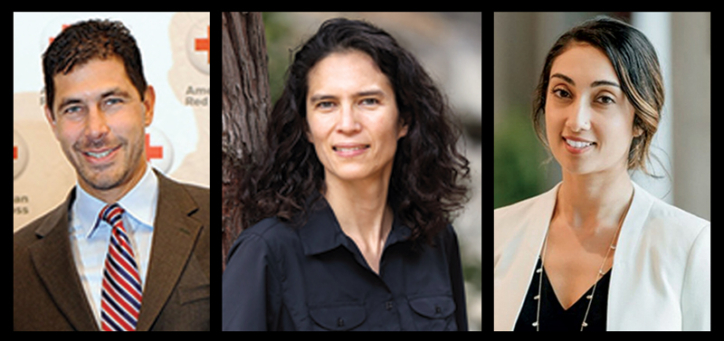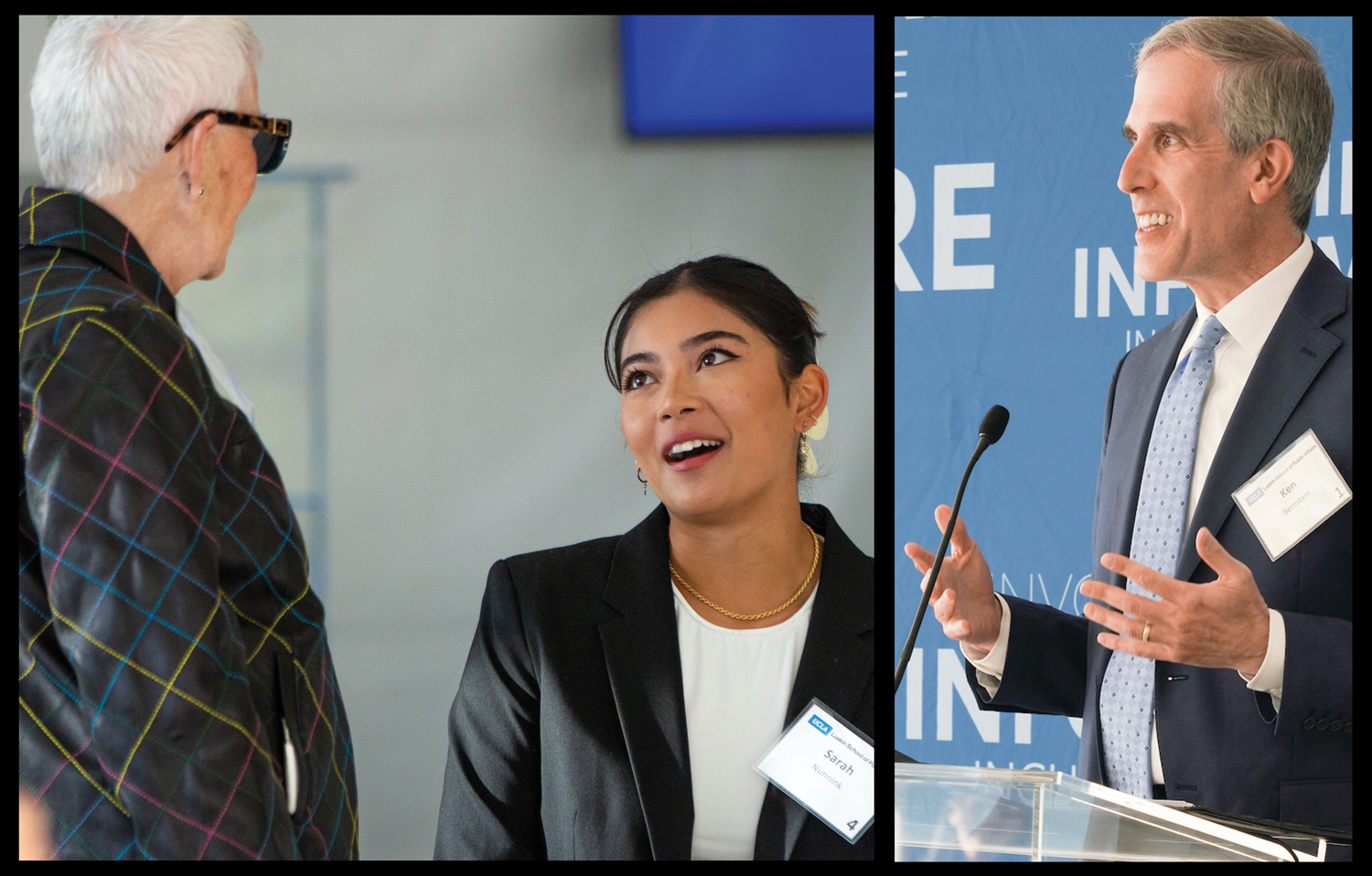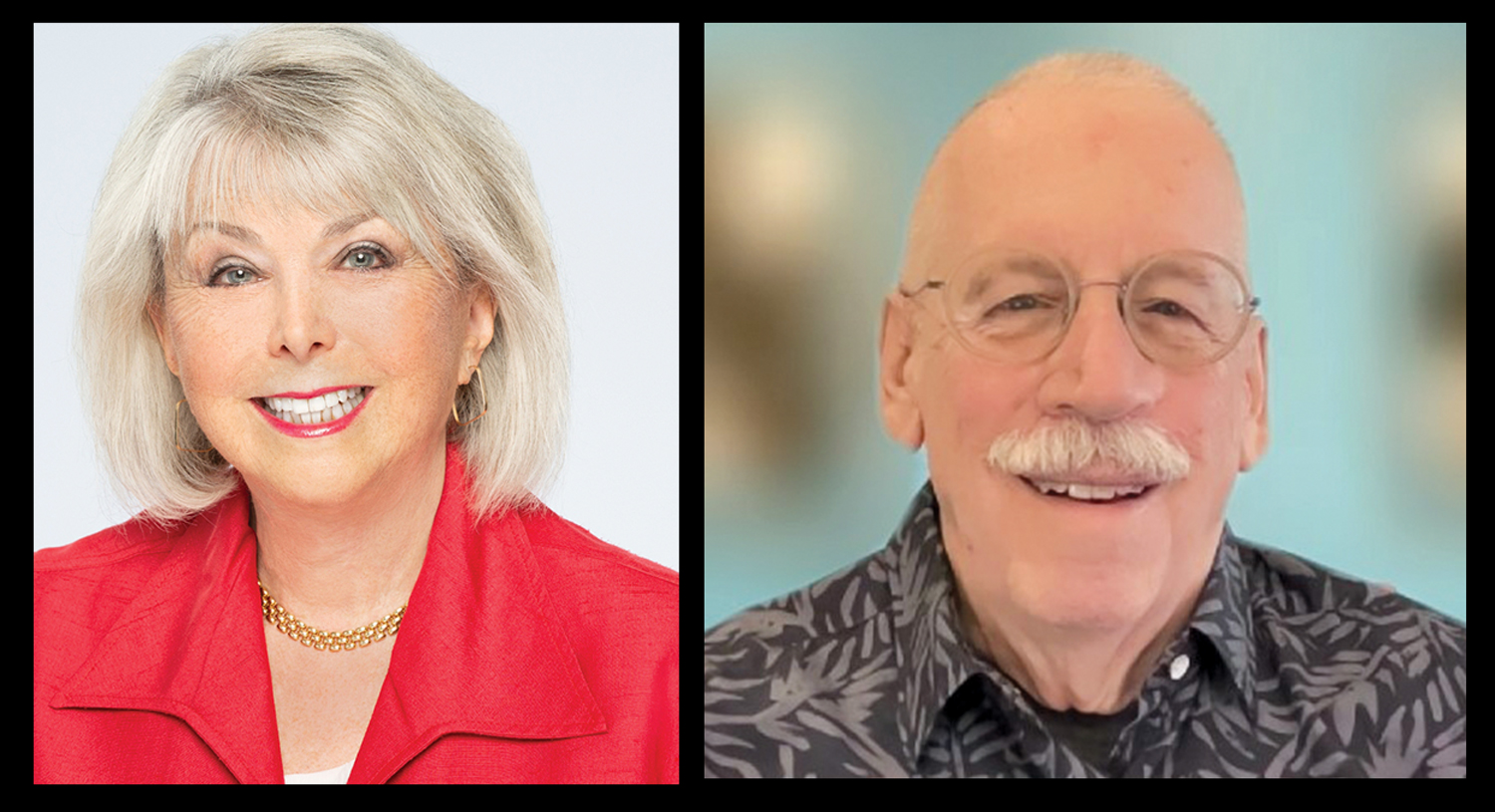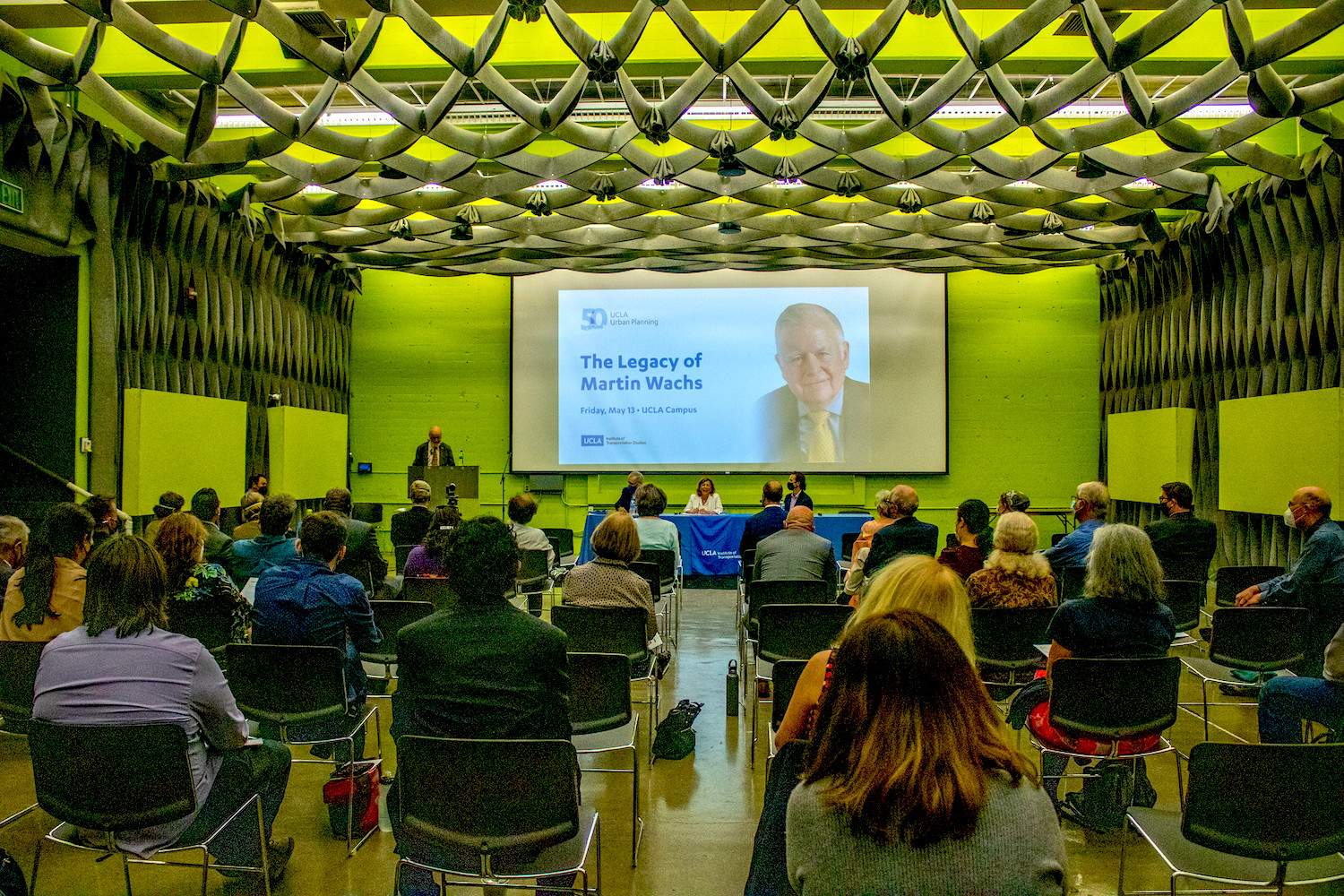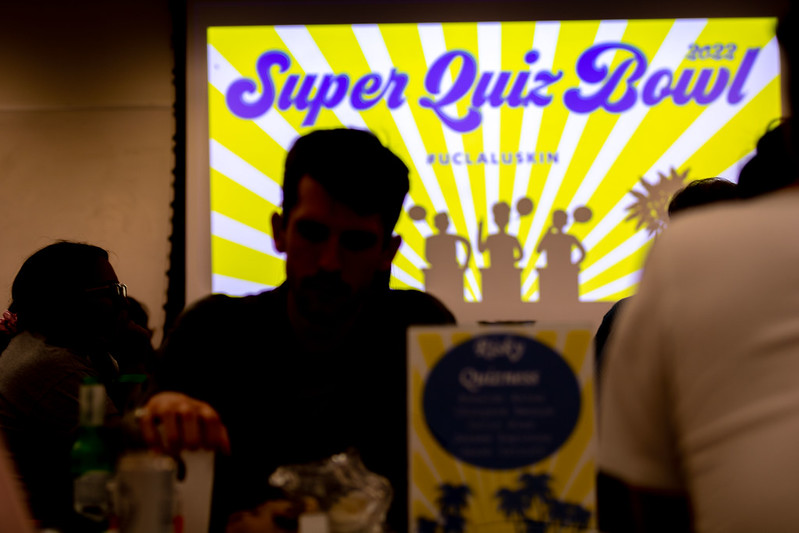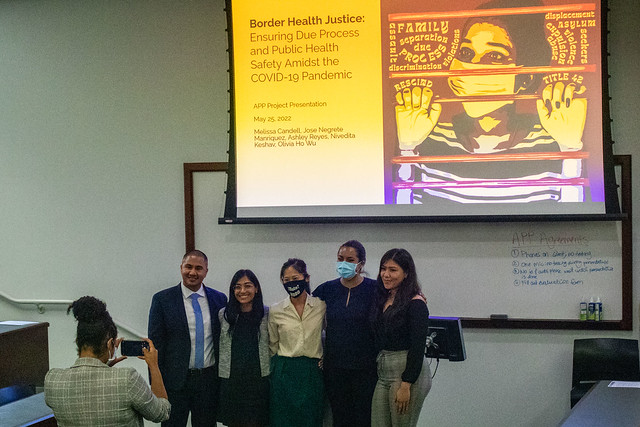NEW ACCOMPLISHMENTS FOR 2 ALUMNI IN TRANSPORTATION
Maddy Ruvolo MURP ’20 was appointed to serve on the board of a federal agency that promotes accessibility, especially in transportation, for disabled people.
Ruvolo currently works at the San Francisco Municipal Transportation Agency. She has spent her career ensuring that disabled people can seamlessly navigate their neighborhood and surrounding areas.
Ruvolo, 29, is younger than the Americans With Disabilities Act and told the San Francisco Examiner that fact illustrates “how long so many people in the disability community have been waiting for accessibility. We’ve made huge strides, but there’s so much work yet to do.”
In the same article, Ruvolo said she believes San Francisco has been exemplary at offering micromobility — transportation that uses lightweight vehicles, especially electric ones borrowed through self-service rental programs, as an inclusive option for disabled people. With this opportunity to work with the Biden administration, she wants to take that concept and apply it on a grander scale across the country.
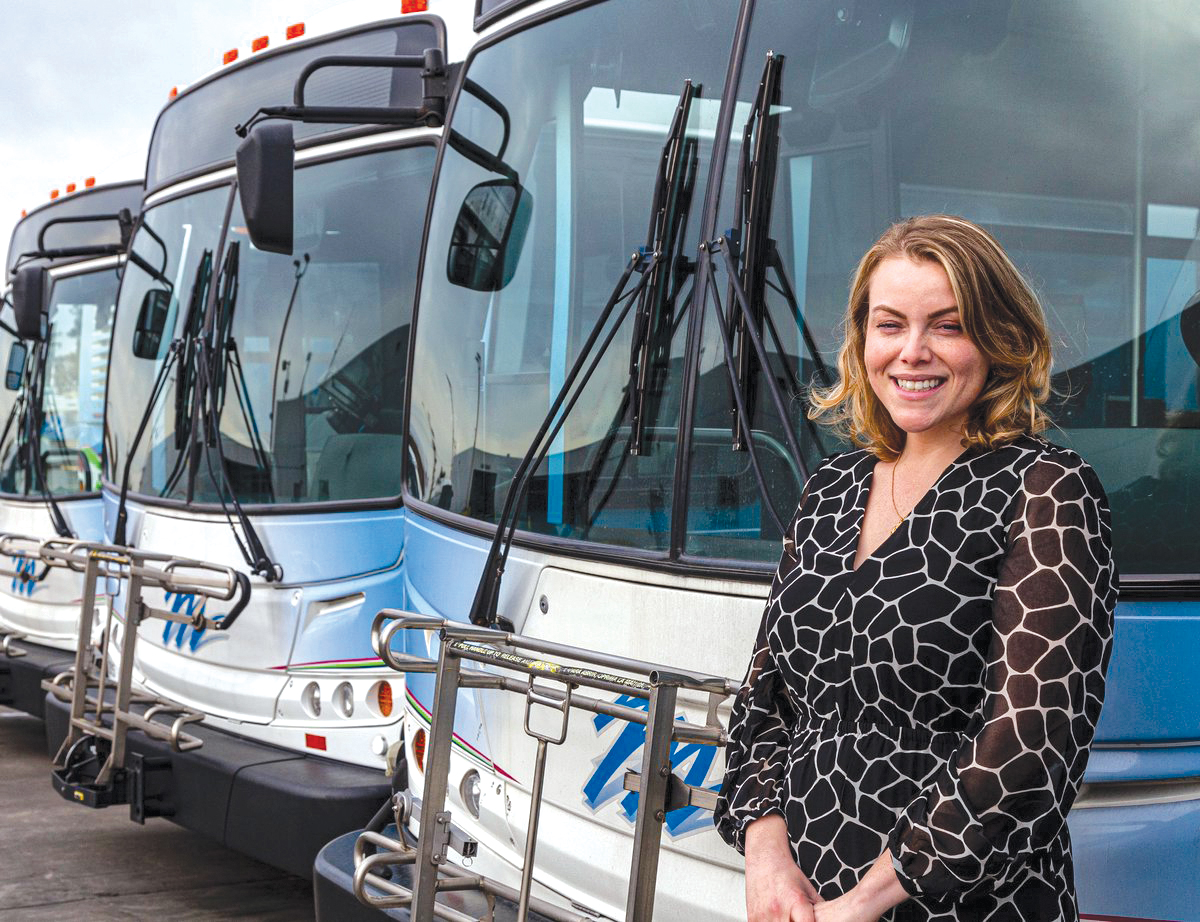
Lupita Ibarra
Lupita Ibarra ’10 MURP ’12 was recently hired to lead the City of Montebello’s Department of Transportation.
In her role, Ibarra oversees the day-to-day operations of seven local routes, one express route, a semi-fixed-route feeder service, and a dial-a-taxi service.
Ibarra was previously the senior operations manager in the Transportation Management Center of San Francisco MTA, where she developed operator forecasts, carried superintendent responsibilities within the light rail operating division, and led the development of new initiatives that included route and systemwide studies of service levels, operations, demand and strategic planning.
In a story posted by TransitTalent, an online site focusing on the transit industry, Ibarra says, “I am very excited to return to Southern California, where I grew up riding public transit … bringing with me a decade of experience managing major transportation systems in San Francisco. My goal is to improve the riding experience for our passengers, which we will achieve through improving the reliability and safety of the system, investing in a modern and sustainable fleet all while making [Montebello Bus Lines] a great place to work.”
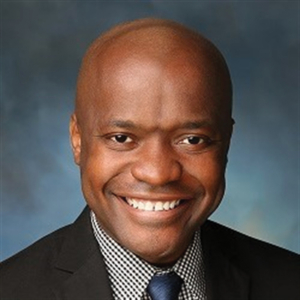
Culver City Mayor Daniel Lee
SOCIAL WELFARE ALUMNUS IS NOW CULVER CITY’S MAYOR
Daniel Lee MSW ’15 is serving his first term as the mayor of Culver City following a previous term as vice mayor.
He became the first African American member of the Culver City Council upon election in 2018.
Lee has said that his inspiration to be of service comes from his grandmother, who participated with Martin Luther King Jr. in the Montgomery bus boycott.
Lee, who earned his doctorate at USC in 2021, is a veteran of the U.S. Air Force and California Air National Guard. He was formerly a filmmaker and actor, and, for 17 years, volunteered with El Rincon Elementary School students in an artist and communication program.
He has also been a social worker and a union-affiliated campaign worker. Lee’s current and past affiliations include the Board of Directors for Move to Amend, the Backbone Campaign, Mockingbird Incubator and the Clean Power Alliance.
In addition, Lee served on the Culver City Martin Luther King Jr. Celebration Committee for seven years. He developed a civil rights curriculum that was implemented at the city’s Teen Center to increase young people’s understanding of their country’s history.
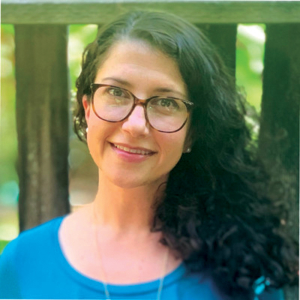
Sasha Wisotsky Kergan
URBAN PLANNING GRADUATES RECEIVE STATE APPOINTMENTS
California Gov. Gavin Newsom has appointed two alumnae of UCLA Luskin Urban Planning to new positions with statewide impact.
Sacramento resident Sasha Wisotsky Kergan MA UP ’10 has been appointed as the deputy secretary of housing and consumer relations at the Business Consumer Services and Housing Agency. This is not Kergan’s first time working at the California Department of Housing and Community Development’s Division of Housing Policy Development. Since 2017, she has held the positions of housing policy specialist, housing policy manager, and data and research unit chief. In addition, she was asset manager at the Oakland Housing Authority from 2015 to 2017. While at UCLA, she emphasized real estate development and finance in her studies.
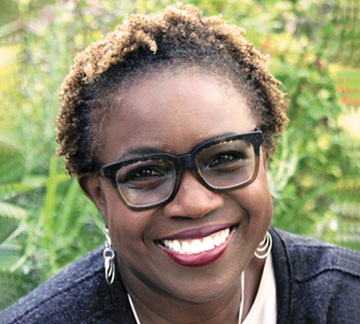
Lande Ajose
Oakland resident Lande Ajose MA UP ’95 has been appointed to the California Cradle-to-Career Data System Governing Board. Ajose has been vice president and senior fellow at the Public Policy Institute of California since 2021. She was senior policy advisor for higher education in Newsom’s office from 2019 to 2021, where she chaired the Governor’s Council for Postsecondary Education. Throughout Ajose’s career, she has focused on improving the lives of Californians. She works in state government, private philanthropy and research institutions to do so. Her research interests include addressing issues of inequality through education and employment.
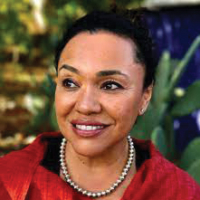
Maria Rosario Jackson
URBAN PLANNING ALUMNA LEADS NATIONAL ENDOWMENT FOR THE ARTS
Urban Planning alumna Maria Rosario Jackson Ph.D. ’96 has been confirmed as chair of the National Endowment for the Arts, becoming the first African American and Mexican American woman to lead the federal agency.
“The arts are critical to our well-being, to robust economies and to healthy communities where all people can thrive,” said Jackson, a professor at Arizona State University who has served on the National Council on the Arts since 2013.
For more than 25 years, Jackson’s work has focused on understanding and elevating arts, culture and design as critical elements of strong communities.
She has served as an advisor on philanthropic programs and investments at national, regional and local foundations, including the Los Angeles County Cultural Equity and Inclusion Initiative and the Smithsonian Center for Folklife and Cultural Heritage. She serves on the board of directors of the Performing Arts Center of Los Angeles County, among other organizations, and her work appears in a wide range of professional and academic publications.
She also taught a UCLA course on arts, culture and community revitalization.
Jackson grew up in South Los Angeles and credits her parents with instilling a love of the arts in her family.
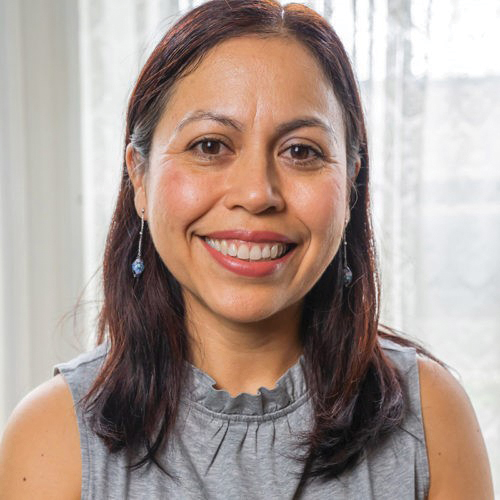
Aurea Montes Rodriguez
MSW ALUMNA SPEAKS DURING UCLA CHANGEMAKERS SUMMIT
UCLA Luskin alumna Aurea Montes-Rodriguez BA ’97 MSW ’99, participated in March 2022 in the UCLA Alumni Association’s three-day summit, known as Changemakers.
The summit is designed to empower attendees to gain the knowledge needed to champion diversity, equity and inclusion in the workplace. Montes-Rodriguez is executive vice president at Community Coalition.
She spoke virtually along with other UCLA alumni: John Ho Song ’85, executive director, Koreatown Youth and Community Center, and Henry Perez ’00 MA ’03, associate director, InnerCity Struggle.
Montes-Rodriguez has worked at Community Coalition for more than 20 years. In 2017, she was named Social Welfare Alumna of the Year, an award that honors Joseph A. Nunn, a UCLA alumnus and former vice chair and longtime former director of field education for UCLA Social Welfare.
Born in Mexico and raised in South Los Angeles, Montes-Rodriguez developed a passion for creating change at the local level. She has been a key leader responsible for building Community Coalition’s youth programs to fight for educational equity, leading efforts to keep children in family care and out of the foster care system, helping to build organizing capacity in South L.A., and leading a capital campaign to transform the organization’s headquarters into a state-of-the-art hub for community organizing.






